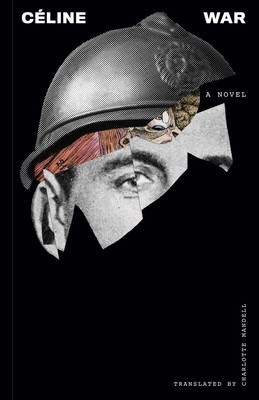
- We will send in 10–14 business days.
- Author: Louis-Ferdinand Céline
- Publisher: New Directions Publishing Corporation
- ISBN-10: 081123732X
- ISBN-13: 9780811237321
- Format: 13.3 x 20.4 x 1 cm, minkšti viršeliai
- Language: English
- SAVE -10% with code: EXTRA
Reviews
Description
Céline had long claimed that Death on the Installment Plan was the start of a trilogy, and that the manuscripts of War and London had been stolen by the Resistance from his apartment, when he fled for his life--an abhorred collaborator--from Paris. Few believed him, but then, mysteriously, the manuscripts came to light in 2020. Greeted rapturously in France ("a miracle," Le Monde; "the discovery of a great text," Le Point), the reception of War is sure to be more controversial abroad. Though much revered as "the most blackly humorous and disenchanted voice in all of French literature" (London Review of Books), Céline is also reviled for his infamous antisemitic wartime pamphlets.
War begins with Ferdinand waking in shock on the battlefield, grievously injured, with all his comrades sprawled out dead around him: it's a scene of visceral horror, carnage, and pain. I must have stayed there for part of the following night as well. My whole left ear was stuck to the ground with blood, my mouth too. Between the two there was an immense noise. In agony, Ferdinand staggers off in search of help...
Reading War is a haunting and unsettlingly volatile experience, like looking at one Otto Dix picture after another. Its key idea--that trench warfare lodges itself in the soldier's head forever, goes on destroying him, cuts him off from those who have not been on the front, and makes the hypocrisies of their safe world repugnant--drives itself under the reader's skin, powered by the sheer velocity of Céline's voracious, gritty, raw, graphic style.
- Author: Louis-Ferdinand Céline
- Publisher: New Directions Publishing Corporation
- ISBN-10: 081123732X
- ISBN-13: 9780811237321
- Format: 13.3 x 20.4 x 1 cm, minkšti viršeliai
- Language: English English
Céline had long claimed that Death on the Installment Plan was the start of a trilogy, and that the manuscripts of War and London had been stolen by the Resistance from his apartment, when he fled for his life--an abhorred collaborator--from Paris. Few believed him, but then, mysteriously, the manuscripts came to light in 2020. Greeted rapturously in France ("a miracle," Le Monde; "the discovery of a great text," Le Point), the reception of War is sure to be more controversial abroad. Though much revered as "the most blackly humorous and disenchanted voice in all of French literature" (London Review of Books), Céline is also reviled for his infamous antisemitic wartime pamphlets.
War begins with Ferdinand waking in shock on the battlefield, grievously injured, with all his comrades sprawled out dead around him: it's a scene of visceral horror, carnage, and pain. I must have stayed there for part of the following night as well. My whole left ear was stuck to the ground with blood, my mouth too. Between the two there was an immense noise. In agony, Ferdinand staggers off in search of help...
Reading War is a haunting and unsettlingly volatile experience, like looking at one Otto Dix picture after another. Its key idea--that trench warfare lodges itself in the soldier's head forever, goes on destroying him, cuts him off from those who have not been on the front, and makes the hypocrisies of their safe world repugnant--drives itself under the reader's skin, powered by the sheer velocity of Céline's voracious, gritty, raw, graphic style.


Reviews